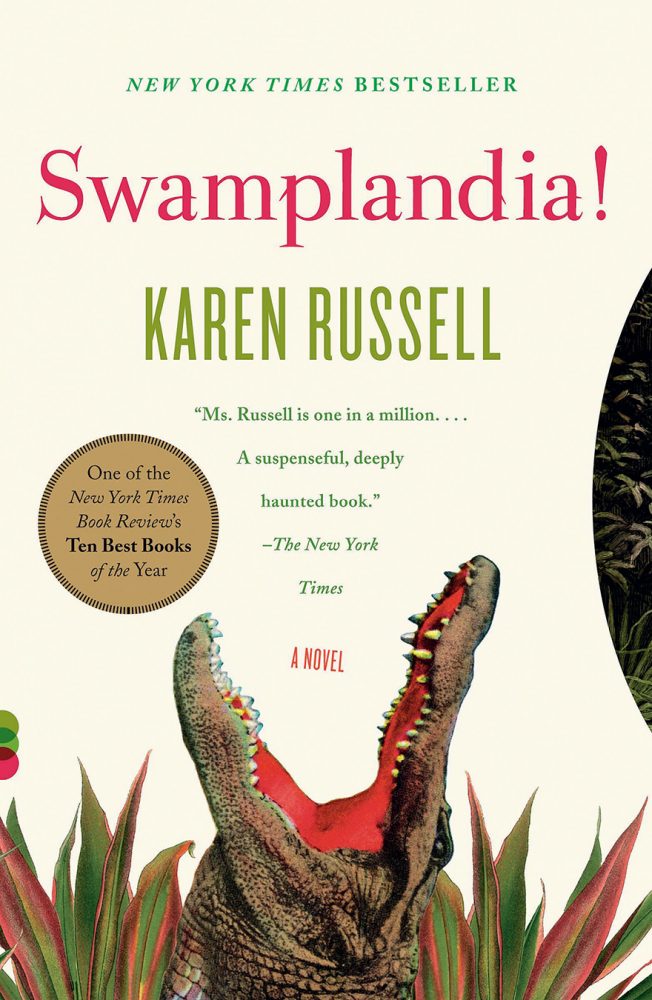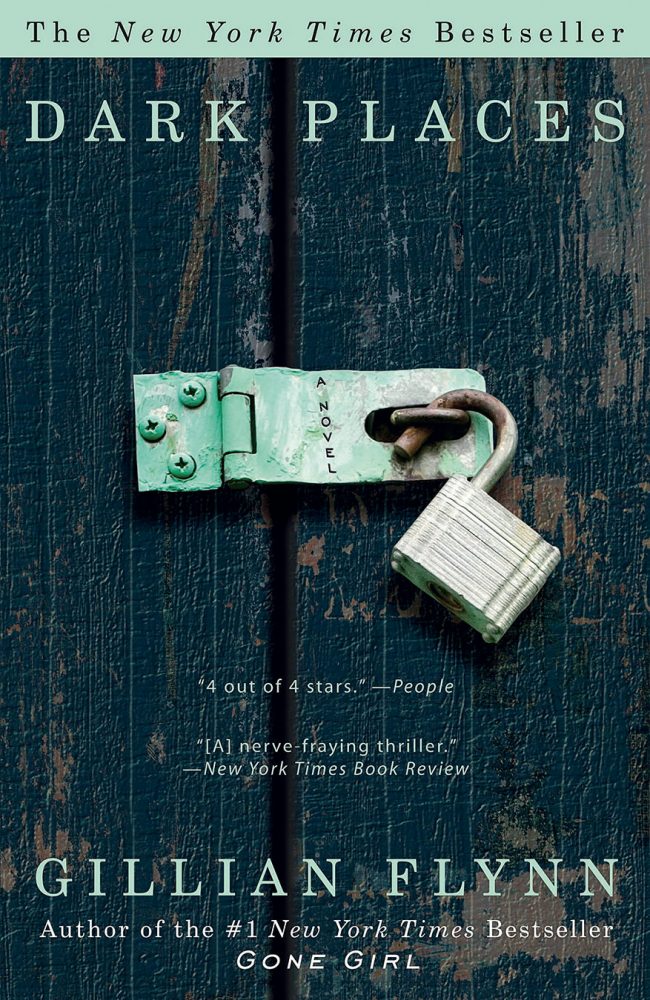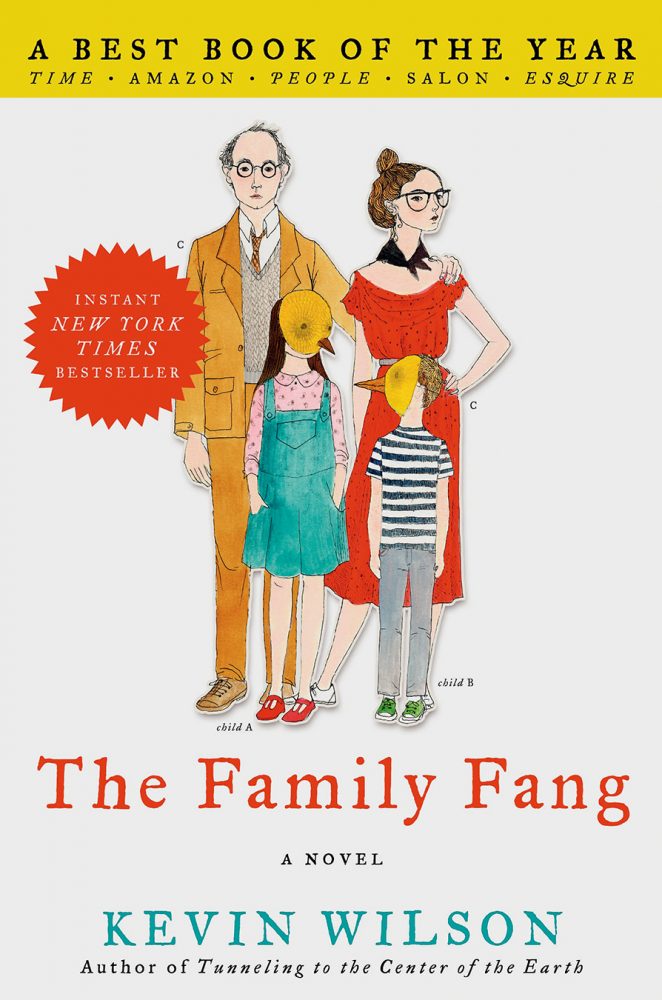Missing: my family. Funny and/or disturbing, stories of missing families make for terrific reading. After all, your family makes you who you are, or (just as often) prevents you from being who or what you think you could have been. When family members go missing, the effect is magnified by memory, creating a perfect breeding ground for the stuff that spawns good fiction.
Swamplandia! (Knopf, 2011), a first novel by Karen Russell, is nearly impossible to summarize and sound sane, but Russell’s narrator, Ava, does it with panache: “The Beginning of the End can feel a lot like the middle when you are living in it. When I was a kid I couldn’t see any of these ridges. It was only after Swamplandia!’s fall that time folded into a story with a beginning, a middle, and an ending. If you’re short on time, that would be the two-word version of our story: we fell.”
The fall in question relates to the Bigtree family, white folks who, while passing themselves off as indigenous, operate an isolated island theme park in Florida that specializes in, of all things, alligator wrestling. After the matriarch and head wrestler, Hilola, dies, the rest of the family, one by one, go missing. Some head for the mainland; one sister disappears with her boyfriend, who just happens to be a sailor-slash-ghost. At the end of the fall (and the beginning of the story), 13-year-old Ava is left alone to navigate the dark and churning waters of her island home. In spite of the twee-sounding elements, the book is a gorgeous, gothic tale: wrenching magic realism with a distinctly Floridian bent.
But can there be anything more wrenching than missing… artists? The Family Fang, by Kevin Wilson (Ecco, 2011), is the story of two adult children in search of their parents, who may or may not be missing, and who have left behind a scene indicating that they may or may not be dead. The Fang seniors, Caleb and Camille, are performance artists who have spent a lifetime ruthlessly using and abusing their children in the name of art. They operate under the not-uncommon belief that “conventional lives are the perfect refuge if you are a terrible artist.” Hence: no convention for their progeny! Annie and Buster spend their early lives as props in their parents’ theatre of the ultra-awkward, and Wilson’s novel explores what happens when art takes precedence over child rearing. We observe those consequences in the adult flailings of Annie, an actress, and Buster, a writer, both of whom have difficulty making choices and believing in their own reality and who thus end up retreating to the family home. The search for their parents (and themselves) that ensues incorporates some of the funniest scenes in my recent memory, among them, one in which Buster is sent undercover with some potato gunners and barely makes it out alive.
Dark Places (Crown, 2009) is, as its title suggests, a darker story altogether. It is a tale about family annihilation and about being the sole survivor of an unthinkable disaster. Author Gillian Flynn is currently riding a well-deserved wave of adulation for her smash hit Gone Girl (Crown, 2012), but her sophomore effort is perhaps even more intricately plotted and compelling. Libby Day is the survivor of the notorious “Satan Sacrifice of Kinnakee, Kansas”, in which her mother and two sisters were massacred. Her brother, Ben, sits in prison after being convicted of the crime, largely as a result of seven-year-old Libby’s testimony. Libby is now in her 30s and nearly broke, having spent the past 24 years living off bitterness, fear, and a fund set up for her after the murders.
To make ends meet, Libby agrees to help a nasty little murder fan group called the Kill Club discover whether the right person went to jail. Flynn uses a split narrative to recreate the last days of Libby Day’s doomed family and, in so doing, turns what could have been an overblown, chaotic mess into a heart-stopping, mind-twisting, but ultimately tragically believable tale. As the tortuous threads of the tale twist toward their conclusion, you will be stricken not just by the knife-edge of Flynn’s prose, but also by her compassion for the circumstances that surround the Day family. Flynn’s talents, like Russell’s and Wilson’s, are up to the task of changing the ways we think about “lost” families and the legacies they
leave behind.












